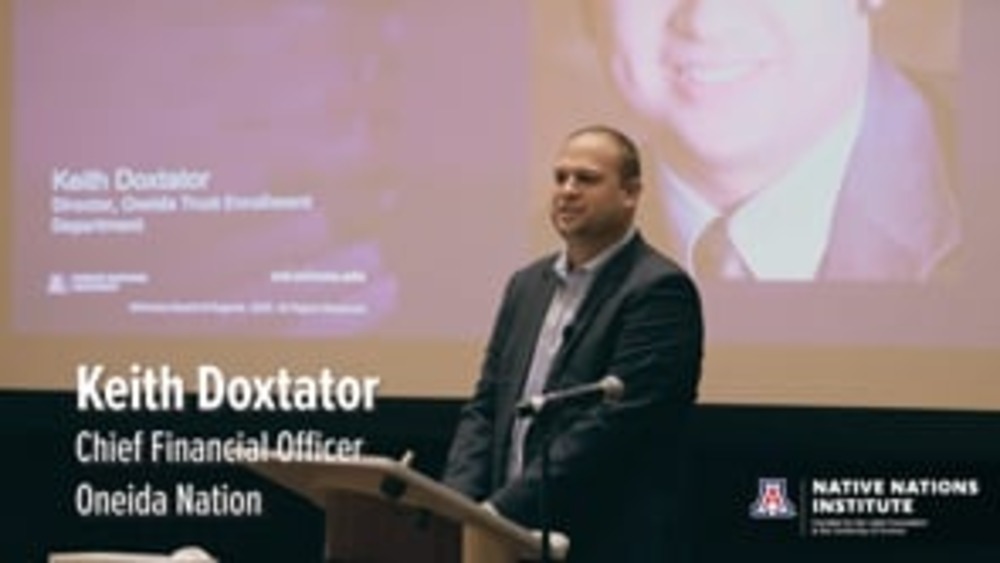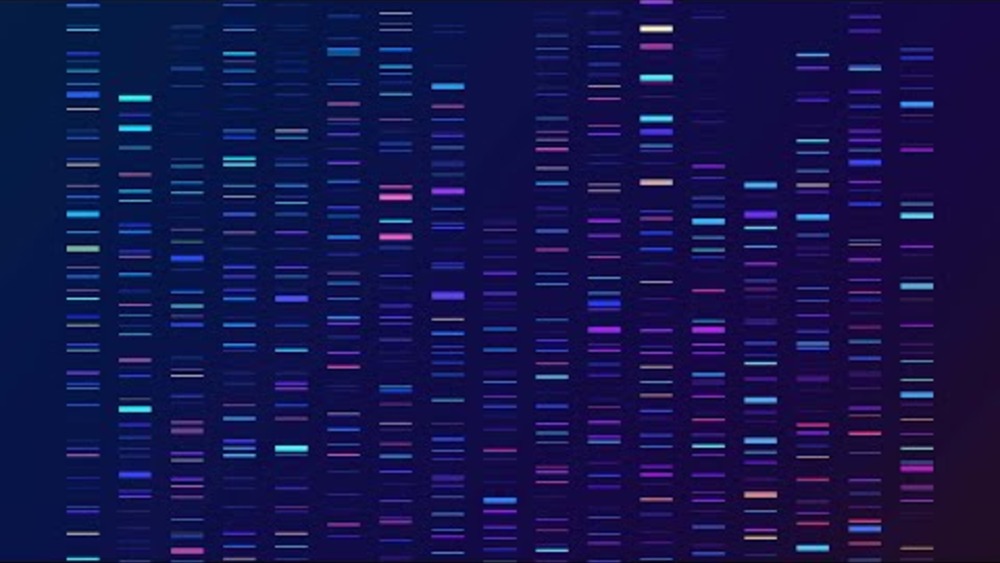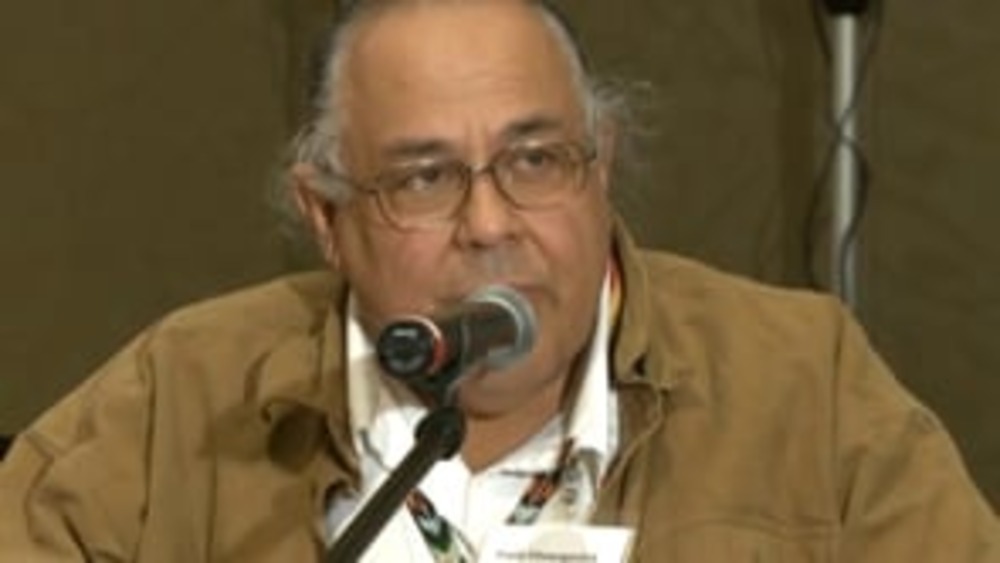In this excerpt from his presentation at NNI's "Emerging leaders" seminar in 2012, Citizen Potawatomi Nation Chairman John "Rocky" Barrett provides an overview of how the U.S. government -- specifically the Bureau of Indian Affairs -- imposed blood quantum on the Citizen Potawatomi people, and how the nation has worked to reclaim and exercise its right to determine citizenship according to its own criteria.
Additional Information
Barrett, John "Rocky." "A Sovereignty 'Audit': A History of Citizen Potawatomi Nation Governance." Emerging Leaders seminar. Native Nations Institute for Leadership, Management, and Policy, University of Arizona. Tucson, Arizona. October 11, 2012. Presentation.
Transcript
"Citizenship. We knew we could amend our constitution because they told us that the only way we were going to get this payment from the 1948 Indian Claims Commission -- the 80 percent of the settlement that had been tied up since 1948 -- in 1969 is we had to have a tribal roll and the BIA [Bureau of Indian Affairs] told us that the only way you could be on the tribal roll was to prove that you were one-eighth or more Citizen Potawatomi. Now the blood degrees of the Citizen Potawatomi were derivatives of one guy from the government in a log cabin in Sugar Creek, Kansas in 1861 who was told to do a census of the Potawatomi, the Prairie Potawatomi and the Citizen Potawatomi. And he told everyone that they had to appear. And as they came in the door, he assigned a blood degree based on what color their skin was in his opinion, and full brothers and sisters got different blood degrees, children got more blood degree than their parents 'cause they'd been outside that summer and those were the blood degrees of the Citizen Potawatomi.
There was a full-time, five-person staff at the central office of the BIA in Washington, D.C. who did nothing more than Citizen Potawatomi blood-degree appeals, about 3,000 of the blood-degree appeals when I first took office. When I became chairman, it had grown to 4,000 or 5,000 and I was in the room when a guy named Joe Delaware said, ‘I have a solution to the Potawatomi blood degree problem. We'll resolve all this. The first mention in any document, church, federal government, anywhere, anyhow that mentions this Indian with a non-Potawatomi language name, he's a half.' Well, they were dunking Potawatomis and giving them Christian names in 1702, full-blooded ones. If you were dealing with the white man, you used your white name and if you were dealing with the Indians you used your Indian name, like everybody else was doing. And so it was an absurd solution. I told him, I said, ‘That's nuts. That's just crazy. You're going to get another 5,000 blood-degree appeals over this.' He said, ‘Well, that's the way it's going to be.' Well, that was the impetus for our coming back and establishing, ‘What are the conditions of citizenship?' And we stopped calling our folks 'members' like a club. They're 'citizens.' And it finally dawned on us that being a Citizen Potawatomi Indian is not racial. It's legal and political.
If they...according to the United States government, if a federally recognized Indian tribe issues you a certificate of citizenship based on rules they make, you are an American Indian, you are a member of that tribe. And you're not part one, not a leg or an ear or your nose but not the rest. You're not part Citizen Potawatomi, you're all Citizen Potawatomi. The business of blood degree was invented so that at some point that the government established, tribes would breed themselves out of existence and the government wouldn't be obligated to honor their treaties anymore. That's the whole idea! That's the whole idea of blood degree and we're playing into it all over this country now over divvying up the gaming money. But I'm not going to get into that. But the business of blood degree, the 10 largest tribes in the United States, nine of them enrolled by descendency and that includes us. We changed it from blood degree to descendency, which was the only reasonable way to do it because we had no way to tell because of this guy in the log cabin in Sugar Creek was what we had.
And then we had permutations of that over the next eight generations that became even more absurd and Potawatomis had a propensity...we're only 40 families and all 31,000 of us had a tendency to marry each other. So when one Potawatomi would marry another Potawatomi -- I'm not saying brothers and sisters or first cousins -- but when they'd marry another Potawatomi then you got into who was what and it was...and this business of the certified degree of Indian blood was ruled to be unlawful, to discriminate against American Indians in the provision of federal services based on CDIB. It's supposed to be based on tribal membership, not the BIA issuing you a certified degree of Indian blood card. A full-blooded Indian who is a member of eight different tribes, whose family comes from eight different tribes, not any white blood, would not be eligible to be enrolled in many tribes. They had absolutely no European blood, would not be eligible simply because he was enrolled in multiple tribes."
The other thing about citizenship is ‘where do we vote?' The only way you could vote in an election at Citizen Potawatomi was to show up at that stupid meeting, violent meeting, and the guys that were in office would say, ‘Okay, everybody that's for me stand up.' Well, nobody could count that was on the other side so everybody would kind of creep up a little bit so you could count. Well, they counted you 'cause you creeped up a little bit so you voted against yourself. So the incumbent would say, ‘Okay, everybody that's for this guy stand up. I won.' Well, that's not how to elect people. That's not right. Two-thirds of our population lives outside of Oklahoma, one-third of it lives in Oklahoma. Those people are as entitled to vote as anybody in the tribe, so the extension of the right to vote and how we vote and for whom we vote and what the qualifications of those people and the residency requirements of those, that was an issue of citizenship that we needed to determine."



